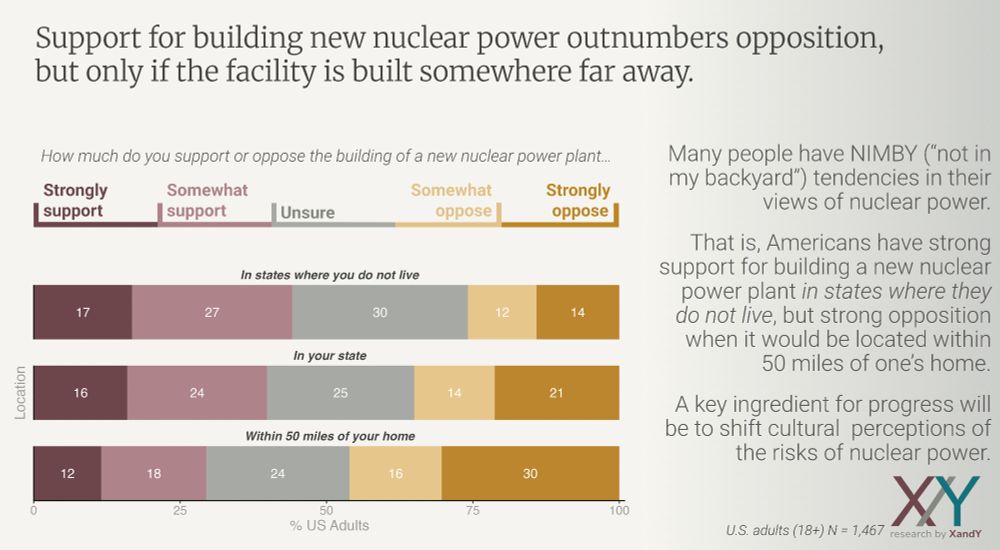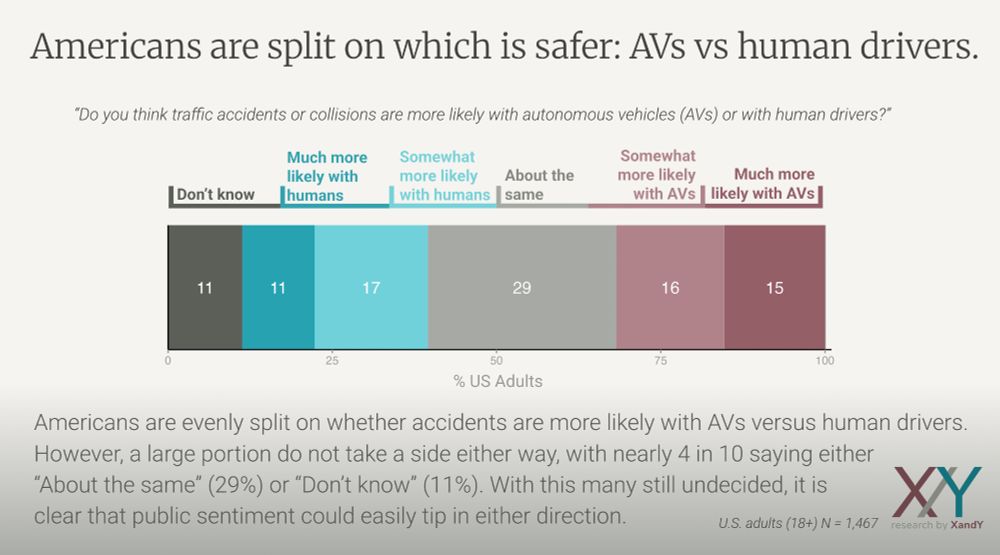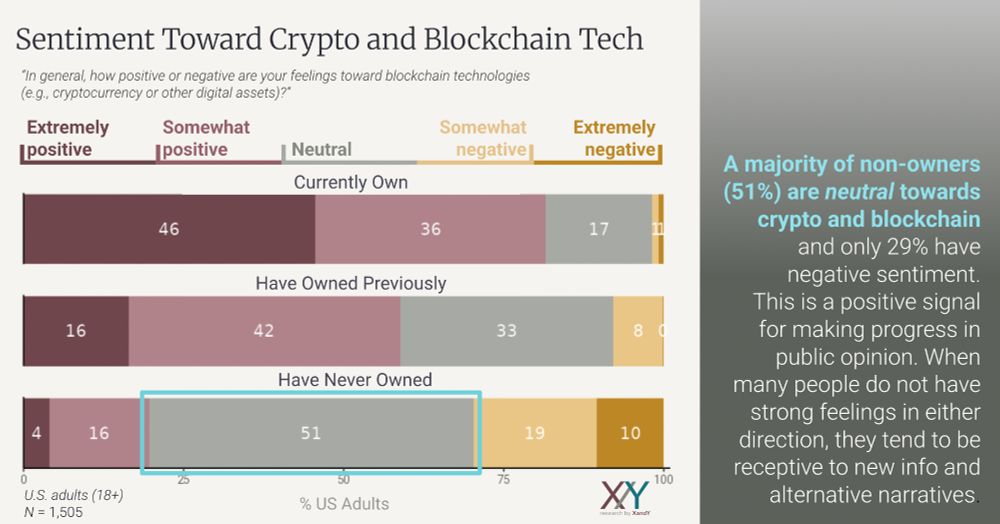Lots more in the full paper.
Official version: doi.org/10.1016/j.je...
Ungated version: osf.io/preprints/os...
Thank you to my incredible co-authors for helping to make this project happen!
/end
Lots more in the full paper.
Official version: doi.org/10.1016/j.je...
Ungated version: osf.io/preprints/os...
Thank you to my incredible co-authors for helping to make this project happen!
/end
This matters for strategy because there are some goals where breadth is more important (e.g., nudging people from being on the fence to being a new supporter), and other cases where depth is more important (e.g., cultivating large time investments from a select subgroup). Depends on your goals.
7/x
This is not a value judgment, clearly both breadth and depth matter for overall persuasion effects, but their importance depends on your goals.
Why does this matter?
6/x

Across 3 case studies we show that, when people are persuaded by a message, it almost always changes their beliefs just a little bit. If there’s an upper limit on how much people will move, then the main way to increase effects is by appealing to more people (i.e., breadth).
5/x
We also looked at *negative* breadth and depth and found that the best messages not only tend to convince more people, but also lead to the least amount of backlash. The most effective messages strike this balance by using appeals that are more compelling to a broader audience.
4/x

When we look at how much breadth and depth account for variation in message effect sizes, we find that both matter, but *breadth* matters more (see figure). That is, messages with larger effects are more likely to persuade more people than persuade people to a larger degree.
3/x

When we compare messages, we usually compare their average effects, but averages miss whether the message effects are driven more by breadth or depth. You could have the same average effects but radically different patterns of belief change.
2/x

🚨 Now published! 💡Do persuasive messages convince more people, or do they convince people to a larger degree?
This is a question of breadth versus depth. We examine this question with 14 unique experiments, 94 messages tested, and 41,265 participants.
Paper: doi.org/10.1016/j.je...
🧵1/x

Lots more in the full paper!
Shout out to Sanguk Lee for doing an amazing job leading the way on this project!
Journal version: doi.org/10.1038/s415...
Ungated version: osf.io/ybdx9
/end
💡 Inconsistency was found in places that both supported increasing the use of renewables and opposed the reduction of fossil fuels. Further analyses showed that geo areas that are more dependent on coal, oil, or gas as economic resources have greater climate change belief system inconsistency.
4/x
We found that belief systems are denser in places with higher GDP per capita and in places where people are exposed to more information about climate change.
3/x
We looked at how populations differ in how strongly connected those beliefs are (density) as well as conflicts between beliefs (inconsistency).
💡 We found places vary widely in density and inconsistency, so we examined whether certain geo characteristics predict these belief system features.
2/x

🚨 New paper now out in Nature Climate Change! 🎉 Climate change belief systems across 110 countries and territories.
Climate change beliefs don’t stand in isolation, they’re connected to one another in a belief system.
1/x

Nuclear NIMBYs: Our new national poll finds that Americans' support for building new nuclear power outnumbers opposition IF it is built in a state where they do not live, BUT the pattern is reversed if it would be located within 50 miles of their home.
28.08.2025 15:17 — 👍 2 🔁 1 💬 1 📌 0
🚨BREAKING: Apparently, we've written a paper about how dog ownership causes extreme weather 🐶🌪️ 😂
Or at least that’s what some 'news' headlines are suggesting in the US...
While I appreciate the media's interest in our recent study in PNAS Nexus, in reality, we found something very different...

Are #AutonomousVehicles safer than human drivers? While the actual safety metrics matter a lot, another important determinant of diffusion and adoption is public perception of which one is safer. Our recent national study found that Americans are still about equally split on this.
21.08.2025 13:47 — 👍 1 🔁 1 💬 1 📌 0
It's going to be an uphill climb for autonomous vehicles.
In AAA's survey, only only 13% of U.S. drivers say a fully self-driving vehicle is important to them, where as 64% of want automatic emergency braking, and 59% want lane-keeping assistance.
newsroom.aaa.com/2025/02/aaa-...

Q: When is a large number of people feeling merely "Neutral" actually a positive signal?
A: When this means there's very little opposition!
In our national poll, we found that 51% of Americans who have *never* owned crypto said they feel neither positive nor negative sentiment... just neutral.

Are younger Americans more likely to own crypto? The data says YES... but with an asterisk.
Typically with new tech, you'd expect younger people are more likely to participate. But in our national study, we see that ownership drops dramatically among adults under 25, despite peaking in ages 25-34.

🧠🌍 Can you correct misperceptions of the impact of different climate actions?
In a new @pnasnexus.org paper, we tested whether climate action literacy interventions can shift behavioral commitments toward more effective climate actions. Check out our neat results 🙂
academic.oup.com/pnasnexus/ad...
I agree so strongly with this!! I have had the good fortune to have several brilliant non-tenure track scientists in my research group, and have massively benefited as a result. This should be the norm!
22.05.2025 15:13 — 👍 16 🔁 4 💬 0 📌 0
💡 Interesting new paper uses semantic similarity to examine the "echo" of strategic comms by environmental orgs. Key findings:
▪️ More than 50% of comms had no "echo" at all
▪️ Online discourse showing strong similarity to the original comms is represented by a very small % of the total
For sure. Nice work!
14.05.2025 18:22 — 👍 2 🔁 0 💬 0 📌 0Perfect, thanks for sharing!
14.05.2025 18:19 — 👍 2 🔁 0 💬 0 📌 0Paper: www.nature.com/articles/s41...
14.05.2025 13:15 — 👍 0 🔁 0 💬 0 📌 0

A common challenge in communicating about climate data is that differences can seem small or noisy on the graph but are actually hugely consequential. An interesting new paper shows that making it binary (e.g., lake froze vs. did not freeze) can increase the perceived climate impacts.
14.05.2025 13:15 — 👍 4 🔁 1 💬 3 📌 0
Incredible effort led by @ericscheuch.bsky.social and a wonderful team at @yaleclimatecomm.bsky.social
/end
🟢 In a deep dive into how message repetition increases durability, we find that repetition grows the size of the audience for whom the message effects last (rather than increasing the amount that lasts among those already persuaded).
Lots more in the full paper: osf.io/preprints/os...
5/x
🟢 Amazing that, after listening to just a 90-second radio story, some of the effects still remained 8 weeks later.
4/x